Horrible. As a former patient, I can say it is not what these flowery five-star reviews mostly granted and/or written by affiliates, etc. (I've even seen some stars given by some of their staff) make it out to be, nor is it as "successful" or as "effective" long-term as they ...
About Maryland Addiction Recovery Center Baltimore
The programs here offer evidence based services that will help you navigate your journey to sobriety. This facility serves as a direct access point for both initial care and as a next step recovery facility for someone stepping down from detox or an inpatient setting.
All programs offer clinical services, and you’ll work with a multidisciplinary team of professionals. You’ll be supported through both individual and group counseling where you’ll learn critical recovery skills. You’ll also have access to family counseling services. This will empower your loved ones with the skills they need to support you during recovery.
Along with a trauma informed approach to care, you also are supported by dialectical behavior therapy. There are spiritual services available here as well. Depending on your circumstances, medication assisted treatment (MAT) may be incorporated into your recovery plan. This type of treatment can help you take control over ongoing cravings throughout your recovery. It will also help minimize the risk of relapse.
Through their residential community living treatment program, you’ll have access to both vocational and educational support services. There’s also round the clock medical care available.
Latest Reviews
Rehab Score
Gallery
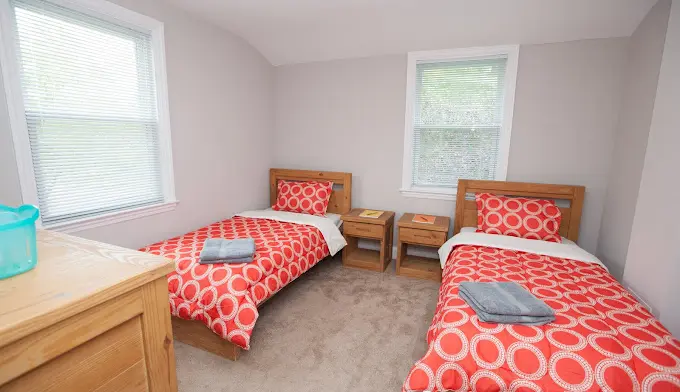
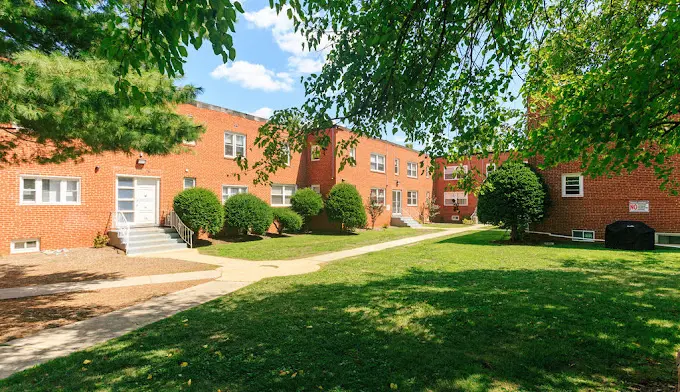
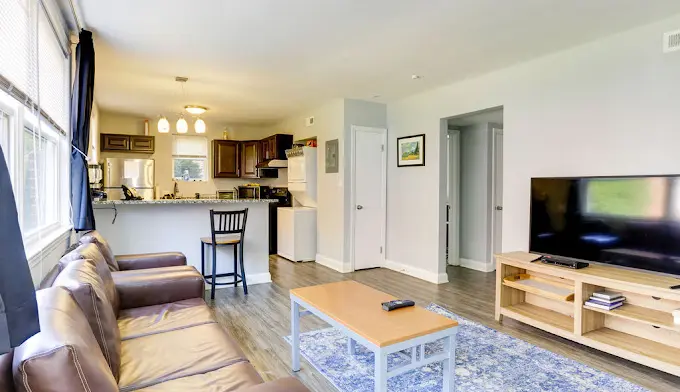
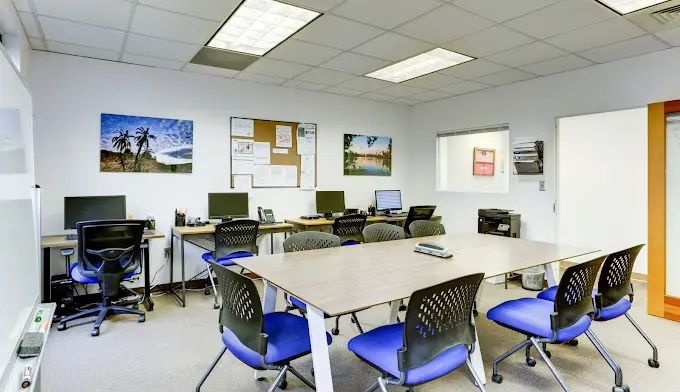
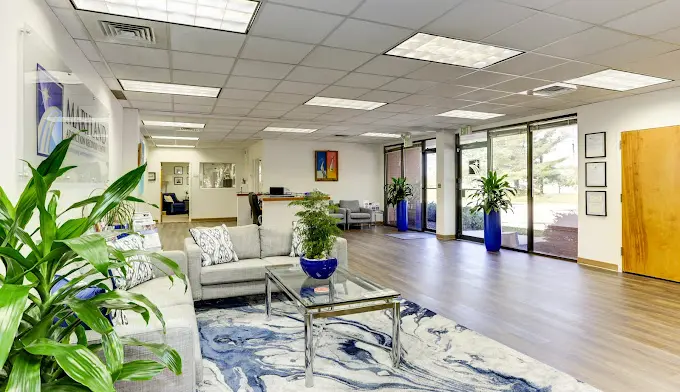
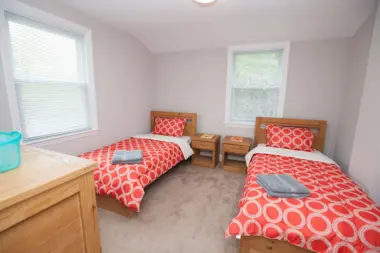
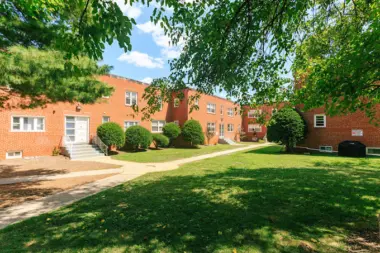
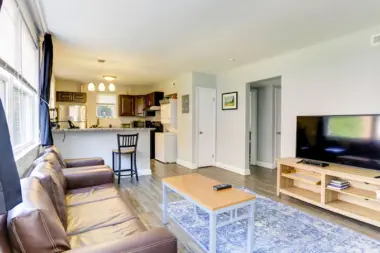
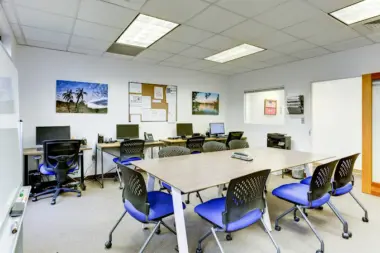
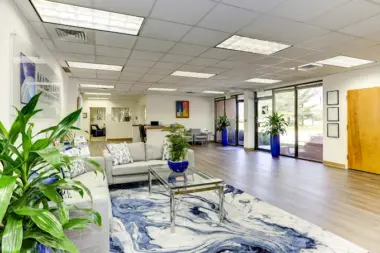
Accepted Insurance
Other Forms of Payment
Private insurance refers to any kind of healthcare coverage that isn't from the state or federal government. This includes individual and family plans offered by an employer or purchased from the Insurance Marketplace. Every plan will have different requirements and out of pocket costs so be sure to get the full details before you start treatment.
Self-pay involves paying for treatment out of your own pocket. You can use savings or credit, get a personal loan, or receive help from family and friends to fund your treatment. If you don't have insurance or your insurance plan doesn't cover a specific program, self-pay can help ensure you still get the care you need.
Financing your treatment can make treatment more accessible. You'll work with your care provider to set up payment plans, including interest rates and repayment timelines. Financing options vary widely and not all programs offer them, so be sure to get the full details before enrolling in treatment. If you have insurance or other benefits, financing may help you cover your remaining out of pocket expenses.
Addiction Treatments
Levels of Care
Outpatient therapy for alcohol and drug addiction, chemical dependency, and dual diagnosis issues is a step down from the IOP program. The outpatient program also includes individualized therapy sessions and group sessions. In this phase of treatment the client’s treatment plan will be changed to meet his/hers ongoing recovery needs. In the outpatient phase of treatment, the focus shifts towards external change, where clients will explore long-term goals and identify and break down barriers to recovery. Therapists at Maryland Addiction Recovery Center will continue to support the clients in the vocational, educational and emotional journeys
Residential treatment programs are those that offer housing and meals in addition to substance abuse treatment. Rehab facilities that offer residential treatment allow patients to focus solely on recovery, in an environment totally separate from their lives. Some rehab centers specialize in short-term residential treatment (a few days to a week or two), while others solely provide treatment on a long-term basis (several weeks to months). Some offer both, and tailor treatment to the patient's individual requirements.
Intensive Outpatient (IOP) addiction treatment is commonly used as either after care following residential treatment; a step down in intensity following successful completion of a residential treatment or inpatient 30 day treatment program. This next step in the treatment continuum increases the potential for a successful recovery by reintegrating the client into everyday life while remaining in ongoing treatment. Intensive Outpatient (IOP) can also be used as a step up in treatment intensity when a client struggles at a less intensive level of care such as an traditional outpatient group setting, individual therapy, individual drug counseling or DUI/DWI education setting.
12-step programs are addiction recovery models based on Alcoholics Anonymous (AA). A number of substance abuse programs (including some drug and alcohol rehab centers) use the 12 steps as a basis for treatment. Beginning steps involve admitting powerlessness over the addiction and creating a spiritual basis for recovery. Middle steps including making direct amends to those who've been hurt by the addiction, and the final step is to assist others in addiction recovery in the same way. 12-Step offshoots including Narcotics Anonymous (NA), Cocaine Anonymous (CA), Dual Recovery Anonymous (DRA), Sex and Love Addicts Anonymous (SLAA) and Gamblers Anonymous (GA).
Most sober living homes in Maryland are located in peaceful, quiet neighborhoods. These private residences are designed to offer a low-stress but structured environment where residents can focus on their ongoing recovery efforts and receive support to maintain sobriety. Several individuals, all of whom are in recovery, share the halfway house. This type of communal living helps decrease relapse, increase employment rates, and helps individuals hone their recovery skills.
Intervention services helps family or friends of addicts stage an intervention, which is a meeting in which loved ones share their concerns and attempt to get an addict into treatment. Professional intervention specialists can help loved ones organize, gather, and communicate with an addict. They can guide intervention participants in describing the damage the addict's behavior is causing and that outside help is necessary to address the addiction. The ideal outcome of an intervention is for the addict to go to rehab and get the help they need.
A partial hospitalization program (PHP) is a short-term form of intensive rehab, usually for those with acute symptoms that are hard to manage but don’t require 24-hour care. PHPs have structured programming (i.e. individual and/or group therapy), and usually meet 3-5 days a week for around 6 hours (i.e. 9am-3m). Some PHPs are residential (patients sleep on site) and some are not, so patients sleep at home. PHPs can last from 1-6 months, and some offer transportation and meals.
For those patients in need of detoxification from drugs and alcohol, Maryland Addiction Recovery Center offers a safe and comfortable medically supervised detox under the care of the center’s Medical Director. Upon entering treatment, each client is evaluated by the Medical Director to gain insight about their medical history, current use and abuse of drugs and alcohol, and detoxification needs. Maryland Addiction Recovery Center utilizes Suboxone to aid clients dealing with withdrawal symptoms from opiate addiction.
Treatments
The goal of treatment for alcoholism is abstinence. Those with poor social support, poor motivation, or psychiatric disorders tend to relapse within a few years of treatment. For these people, success is measured by longer periods of abstinence, reduced use of alcohol, better health, and improved social functioning. Recovery and Maintenance are usually based on 12 step programs and AA meetings.
Once a person has become addicted to a substance, drug rehab in Maryland is often necessary to overcome that addiction. These programs provide the tools individuals need to manage the physical, mental, and emotional issues involved and begin a successful recovery journey.
Many of those suffering from addiction also suffer from mental or emotional illnesses like schizophrenia, bipolar disorder, depression, or anxiety disorders. Rehab and other substance abuse facilities treating those with a dual diagnosis or co-occurring disorder administer psychiatric treatment to address the person's mental health issue in addition to drug and alcohol rehabilitation.
A combined mental health and substance abuse rehab has the staff and resources available to handle individuals with both mental health and substance abuse issues. It can be challenging to determine where a specific symptom stems from (a mental health issue or an issue related to substance abuse), so mental health and substance abuse professionals are helpful in detangling symptoms and keeping treatment on track.
Opioid rehabs specialize in supporting those recovering from opioid addiction. They treat those suffering from addiction to illegal opioids like heroin, as well as prescription drugs like oxycodone. These centers typically combine both physical as well as mental and emotional support to help stop addiction. Physical support often includes medical detox and subsequent medical support (including medication), and mental support includes in-depth therapy to address the underlying causes of addiction.
In Maryland, substance abuse treatment programs support individuals struggling with drugs or alcohol, and those who also have mental health conditions. These rehab programs vary, depending on the level of care you need. That might include inpatient rehab, or an outpatient program. Typically, substance abuse treatment includes evidence-based therapies such as cognitive-behavioral therapy (CBT), dialectical behavior therapy (DBT), recovery support meetings, and skills groups to equip you with new coping strategies when you leave rehab.
Treatment for drug and alcohol addiction often centers on improving mental health. Inpatient care is ideal for people who need closer monitoring while receiving therapeutic and mental health services. Standard therapies include group and individual counseling, relapse prevention education, coping skills training, cognitive-behavioral therapy (CBT), motivational interviewing and family support groups. With all critical therapies combined, there is a greater chance for improving mental health and achieving sustained recovery.
Programs
Adult rehab programs include therapies tailored to each client's specific needs, goals, and recovery progress. They are tailored to the specific challenges adult clients may face, including family and work pressures and commitments. From inpatient and residential treatment to various levels of outpatient services, there are many options available. Some facilities also help adults work through co-occurring conditions, like anxiety, that can accompany addiction.
Young adulthood can be an exciting, yet difficult, time of transition. Individuals in their late teens to mid-20s face unique stressors related to school, jobs, families, and social circles, which can lead to a rise in substance use. Rehab centers with dedicated young adult programs will include activities and amenities that cater to this age group, with an emphasis on specialized counseling, peer socialization, and ongoing aftercare.
Recovery is most successful when clients feel accepted and validated by their peers and treatment providers. Facilities that offer LGBTQ-inclusive programming are committed to creating a safe space where everyone can grow and recover without fear of judgment or discrimination. They will have dedicated policies in place to create a safe and supportive environment that fosters free expression.
Clinical Services
Cognitive behavioral therapy in Maryland emphasizes your current life rather than what has happened in the past. Your therapist will help you develop methods to deal with current and future challenges so you can cope in healthy ways that don't involve substances.
Group therapy is any therapeutic work that happens in a group (not one-on-one). There are a number of different group therapy modalities, including support groups, experiential therapy, psycho-education, and more. Group therapy involves treatment as well as processing interaction between group members.
In individual therapy, a patient meets one-on-one with a trained psychologist or counselor. They encourage their clients to continue individual counseling subsequent to successful completion of their recommended treatment program in order to improve their chances of successful recovery maintenance and to continue to gain insight about their life and the emotional challenges ahead.
Motivational Interviewing (MI) is a clinical approach to helping people with substance abuse issues and other conditions shift behavior in positive ways. It is more goal-oriented than traditional psychotherapy, as MI counselors directly attempt to get clients to consider making behavioral change (rather than wait for them to come to conclusions themselves). Its primary purpose is to resolve ambivalence and help clients become able to make healthy choices freely.
Trauma therapy addresses traumatic incidents from a client's past that are likely affecting their present-day experience. Trauma is often one of the primary triggers and potential causes of addiction, and can stem from child sexual abuse, domestic violence, having a parent with a mental illness, losing one or both parents at a young age, teenage or adult sexual assault, or any number of other factors. The purpose of trauma therapy is to allow a patient to process trauma and move through and past it, with the help of trained and compassionate mental health professionals.
Whether a marriage or other committed relationship, an intimate partnership is one of the most important aspects of a person's life. Drug and alcohol addiction affects both members of a couple in deep and meaningful ways, as does rehab and recovery. Couples therapy and other couples-focused treatment programs are significant parts of exploring triggers of addiction, as well as learning how to build healthy patterns to support ongoing sobriety.
Maryland Addiction Recovery Center recognizes that family members can be crucial in the substance abuse treatment and recovery process. Research clearly demonstrates that recovery is far more successful and sustainable when loved ones like family members participate in rehab and substance abuse treatment. Genetic factors may be at play when it comes to drug and alcohol addiction, as well as mental health issues. Family dynamics often play a critical role in addiction triggers, and if properly educated, family members can be a strong source of support when it comes to rehabilitation.
One of the things that sets Maryland Addiction Recovery Center apart from how other organizations approach the treatment of chemical dependency and substance abuse is the focus they take towards real life barriers to recovery. Their vocational/life skills training and counseling is the social services portion of treatment, offering patients a one-on-one, customized approach to real life issues that may seem like a barrier to recovery. This may include legal or medical issues, living situations and housing, job issues or unemployment, education or schooling, basic job skills, and/or family complications and family dynamics.
Engaging in recreational therapy during your addiction recovery provides you with a sense of accomplishment and joy. Art projects, physical fitness programs, and outdoor adventures help support your physical health, improve your mood, and build a supportive community that will help promote a sober lifestyle.
Experiential therapy in Maryland is an inside out approach. Rather than try to talk through their issues (outside in), clients participate in activities that allow external creative expression of their internal emotions (inside out). Activities may include drama, wilderness adventures, art, or music.
During dialectical behavior therapy sessions, you'll review the challenges you faced the previous week and the feelings you experienced during those times. You and your therapist will engage in problem solving, discussing how you can handle those situations in the future for a better outcome. This involves keeping a diary throughout the week to track your emotions.
The goal of creative arts therapy is to help you express complicated emotions or work through difficult situations. This happens through self expressive activities such as dance, drama, music, or art. The treatment provides a safe setting to process emotions and understand yourself better.
Amenities
-
Private Setting
-
Yoga Studio
-
Gym
-
WiFi
Staff & Accreditations
Staff
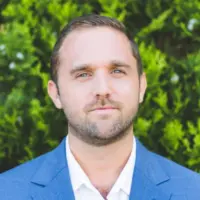
Samuel Bierman
Executive Director & Co Founder
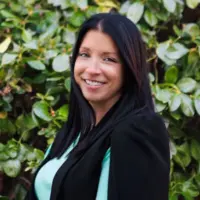
Laurie Wollman
Clinical Director
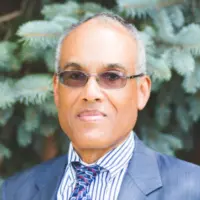
Alfred Forrester
Medical Director
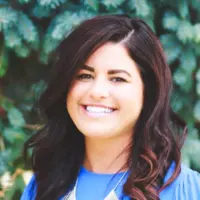
Dustielynn Castrignano
Director of Human Resources
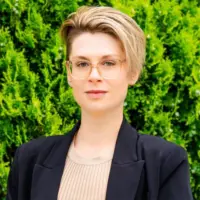
Maura Maguire
Director of Admissions
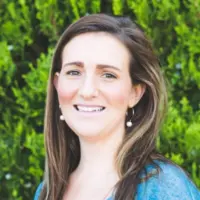
Erin Kelley
Director of Compliance
Accreditations

The Joint Commission, formerly known as JCAHO, is a nonprofit organization that accredits rehab organizations and programs. Founded in 1951, the Joint Commision's mission is to improve the quality of patient care and demonstrating the quality of patient care.
Joint Commission Accreditation: Yes
Accreditation Number: 607645

The National Association of Addiction Treatment Providers (NAATP) is a professional association that represents organizations in the field of addiction services. Founded in 1978, NAATP's mission is to advance addiction services and ensure that high-quality addiction treatment is available and accessible.
NAATP Member: Yes
Member ID: 314
Contact Information
8600 Lasalle Road
Suite 212
Towson, MD 21286








